Early Christianity: Monotheism Becomes Marketable
The next major monotheistic development in ancient times after Zoroastrianism from the East, Judaism from the Ancient Palestinian region, and Atenism from Ancient Egypt/Northern Africa is Christianity, a system which emerged out of the cultural and religious melting pot of the Ancient Mediterranean and quite directly out of Judaism itself as Jesus was of course a Jew and despite his rebellion against the Jewish rabbinic authorities of his day it was the Jewish teachings that he must have been brought up with and those very same teachings from which Christianity build off of and branches from. The development of Christianity as a formal religion doesn’t really begin until the 4th century CE however, when religious persecution of Christians finally comes to an end with the Edict of Milan (c. 313 CE), and then the New Testament canon is established toward the end of the 4th century CE[1].
Christianity comes from the Greek word Χριστός, or Christos, a Greek translation of the Hebrew word for Messiah, מָשִׁיחַ or Mašíaḥ meaning or “anointed one”[2]. As of 2010, it is estimated that there are over 2 billion Christians in the world today representing some 1/3 of the total world population,[3] and despite there being many different schools and branches of Christianity that have evolved over the millennia since it was first established, the faith itself in all its forms fundamentally rests on the interpretation of the life and teachings of Jesus as reflected in the Gospels – the New Testament books of Matthew, Mark, Luke and John – which represent the official Christian sources of the life and teachings of Jesus.
To understand Jesus’s perspective and from what socio-political context he preached however, it must be first and foremost be understood that Jesus was a Jew, and it cannot be dismissed that the Jewish traditions and faith as reflected in the Torah and as taught by the Rabbinic scholars of his day played a major role in his religious and theological beliefs, even if he teachings are viewed in contrast to and in rebellion of contemporary Judaism. According to the Gospels in fact, his crucifixion stems in no small part due to his very public and outspoken disagreement with the Jewish authorities, even though it was left up to the Romans to officially condemn him to death and perform his infamous and ghastly crucifixion.
Although it was many centuries after the death of Jesus that a standard Christian Canon[4] and from it organized and systematized Christianity as we know it today emerged, from the start Christianity rested on the Jewish monotheistic tradition and heritage, reinforcing the belief that there was but one supreme, omniscient God, and that he was to be worshipped to the exclusion of all lesser gods and idols. But the teachings of Jesus, his ministry spanning only the last two or three years of his life according to the Gospels, put a new spin on the God of the Old Testament, transforming God into the omnipresent and omniscient Father figure, introducing the concept of the Holy Spirit, and professing the reality of a direct and personal relationship with God than professed in prevailing Judaic traditions, going so far as to say that the “kingdom of God is within you” and his firm belief that he in fact was the Son of God, the blasphemy that in the end the Rabbis could not tolerate [5].
From this socio-political context, Jesus’s teachings themselves can be looked at as very similar to the development of Buddhism to the East where Buddha professed a path of enlightenment, salvation in western theological terms, that was and should be open to all, stemming from his dissatisfaction with the Brahmin priestly classes’ monopolization of the divine that was prevalent in the India of his day, some four or five centuries prior to Jesus. Jesus’s teachings can be looked at in the same light within the context of the Jewish society within which he lived, grew up and then later taught. To Jesus, the realm of God was not solely the providence of the Rabbis, the priestly class of the Jewish community, but was open and accessible to all. Seek and ye shall find, knock and it shall be opened unto you. As you might imagine, this message was not received all that well.
By the time Jesus starts his ministry in 30 CE or so, we see pretty clear evidence of at least a few centuries of a fairly widespread theological movement away from polytheistic, ritualistic, and mythical based religious systems (what came to be known, and persecuted, as pagan belief systems once Christianity began to take firm root in the West) which had been characteristic of mankind’s development for some tens of thousands of years prior, toward a more unified and rigorously intellectually constructed belief system that put more emphasis on Reason, Mind, and Intellect than it did on faith and mythology.
You also had by the time Jesus preaches a fairly widespread belief of monotheism itself as a more pure form of faith than its polytheistic predecessors, as evidenced not only by the spread of Judaism and Zoroastrianism, but also very pronounced in an albeit a more abstract form in the Hellenic philosophical movement; the first cause of Aristotle and the demiurge, or divine craftsman, of the Platonists. We even see some evidence of monotheistic tendencies in the various allegorical interpretations of some of the traditionally polytheistic faiths of the period, as evidenced in the papyrus of Nes-Manu from Egypt and the Derveni papyrus from Greece, each alluding to the emanation of the many from the One (Neb-er-tcher/Khepera in the Egyptian cosmological narrative and Zeus in its Greek/Orphic counterpart), and both dating back several centuries before Jesus is born. So by the time of Christ then, you have historical precedence for monotheism from a variety of perspectives, both religious and intellectual, and it is from this melting pot of monotheistic tendencies and modes of thought from which early Christianity emerges.
But at the same time you could by no means call the mainstream religious beliefs at the time of Christ to be anything but pantheistic or polytheistic, there were still many gods being worshipped in many temples through the ancient Mediterranean and Near East in a variety of forms and modes of worship. What you did have by the time of Jesus’ ministry however was the existence, perhaps prevalence even at least within the intellectual community, of several well thought out metaphysical frameworks on top of which monotheistic theology could be built upon, providing a rich soil for Christianity to be sown. You could say that in the first few centuries of the Common Era, Western civilization was ripe for the adoption of some sort of standard creed or faith that was more intellectually and rationally evolved than its prehistoric predecessors, and more backed up by reason (Logos) and actual documented history, than the pantheistic and even pseud-monotheistic traditions of the ancient civilizations that had dominated the religious landscape for thousands of years before it.
From the perspective of the development of monotheism itself however, there is not much that Christianity adds to the historical record, outside of the unique story of the life and gruesome death at the cross of its prophet Jesus of Nazareth, although it did synthesize and consolidate a more in depth and cohesive theology, a specific intellectual framework and set of symbols as it were, which clearly resonated with the peoples of the ancient Middle East where it took root. As it took shape, and the official canon and doctrine was established, it clearly showed elements of already accepted and widely adopted Zoroastrian, Neo-Platonist and other Hellenic philosophical traditions. And it is this more cohesive theology, combined with a more well documented life of its prophet and teachings, that ultimately resonates with its earlier followers and leads to its widespread adoption in the centuries following Jesus’s crucifixion, the pace and acceleration of its spread beginning in the 3rd and 4th centuries with their persecution being outlawed and then the faith becoming legalized with the Edict of Toleration in 311 CE, the the Edict of Milan in 313 CE, Emperor Constantine conversion to Christianity in 337 CE and the religion becoming the official religion of the state by edict in 380 CE.
But what Charlie also saw with Christianity, to which direct parallels could be drawn to all of the monotheistic faiths which preceded it, was a connection between its spread and influence with an underlying political motivation to unite peoples from a range of cultural backgrounds and geographies under one ruler and one kingdom, forces which played a significant role in the standardization of the belief system and the scripture which it rested upon. The Romans utilization and standardization of the teachings of Jesus as they were formed in the early days of Christianity utilized the same methodology employed by Persian emperors and kings which rested their authority in on the teachings of Zarathustra to legitimize and unify their kingdom in the Mediterranean and Near East in the 6th and 5th centuries BCE, by the Jewish authorities to unite its people as their canon was crafted and transcribed based upon the teachings of Moses at around the same time, and even the methods used by Amenhotep IV in his albeit failed attempt at the consolidation of power in the latter part of the 2nd millennium BCE[6].
In a sense you could look at Christianity in its earliest form as an adoption of the prophet Jesus and his story of suffering and salvation through crucifixion and resurrection, combined with a theology that was a synthesis, a compromise almost, of reigning Jewish, Greek and even Zoroastrian theology that was specifically designed to resonate with the majority of the people of the Roman Empire, an Empire which when Christianity is officially formed consisted of Egyptians, Canaanite/Semitic peoples, Persians and Greeks. From this vantage point, Charlie could see the early Christian Fathers, the harbingers and creators of the original structured Christian faith with the standardization and development of the Christian canon and the establishment of the Church, as the first, and perhaps best of all time, Marketing effort that set out to, and was extraordinarily successful at, designing a religious system that would facilitate the consolidation and smooth running of an empire while still serving the spiritual needs of its people.
For example there are lines that can be drawn from early Christianity to the work of early Jewish scholars and philosophers such as Philo of Alexandria (c 20 BC – 40 CE), who expounds and develops the construct of Logos which plays an important role throughout his works on Old Testament exegesis. Logos, or Reason which is later transliterated as simply the Word in Christian circles, has its origins in classical Hellenic philosophy, a term whose prominence can first be found in the work of the Greek philosopher Heraclitus of the 5th century BCE (c. 535 – c. 475 BCE) and which Philo further develops and builds upon in order to fuse Jewish and Hellenistic philosophical thought and attempt to establish the legitimacy of Old Testament scripture and the teachings of Moses. Philo, despite his Jewish heritage, is looked upon in some schools as a Church Father, speaking to the influence of his work on the development of early Christian doctrine.
Logos, as Reason, along with Gnosis, or “knowledge”, also plays a role in Gnosticism, a doctrine which not only shows strong Greek (mostly Platonic) and Jewish Old Testament influence but a doctrine which also clearly influences the development of early Christianity as evidenced by the expansive Greek Gnostic literature discovered in Nag Hammadi library in 1945 within which the role and teachings of Jesus are given significant consideration. Gnosticism is based upon the idea that knowledge, gnosis, is the key to salvation and that the material world is an emanation from a lesser construct, or god, that is in some early Gnostic circles associated with a Platonic demiurge like figure, and in others circles is looked upon as the representation of evil or falsehood, as can be seen with its association with the evil god Ahriman of the Zoroastrians or even Satan in Christianity.
“External physical fasting is observed even among our followers, for it can be of some benefit to the soul if it is engaged on with reason (logos), whenever it is done neither by way of limiting others, nor out of habit, nor because of the day, as if it had been specially appointed for that purpose.”[7]
It is this very same construct of Logos that is invoked at the beginning of the Gospel of John, a Gospel which is markedly different from the other three Books on the life of Jesus in the New Testament which are classically grouped together given their similarities as the Synoptic Gospels. The Gospel According to John, most notably in its opening statement “In the beginning was the Word, and the Word was with God, and the Word was God.” clearly displays Gnostic and/or Philo like influence.[8]
Other early Christian theological developments such as the doctrine of the Trinity also show extra-Christian influence as well. The first reference to the Trinity for example, a core construct of modern Christian theology, comes not from anywhere in the Old or New testament portions of the Bible, and certainly not from any of the teachings of Jesus that survive down to us in the Gospels, but from Christian theologians from the second century CE and onward. For although God the Father and the Holy Spirit are referred to and spoken of in Christian scripture, in both the Old and New Testament, the doctrine of the Holy Trinity is not explicitly stated or referred to anywhere in the Bible itself but is inferred by later Christian theologians. It is not until commentaries and interpretations of Christian scripture begin to emerge with the advent of the Roman Imperial influence in the Middle and Near East in the 2nd, 3rd and 4th centuries CE that we see evidence of the doctrine of the Holy Trinity which then later takes root in the orthodox Christian community and the Church.
The first use of the term Trinity can be found in the 2nd century CE in the Greek writings of Theophilus of Antioch (located in modern day Turkey), and in a Latinized form as trinitas, or “threeness”, by Tertullian from Carthage (Northern Africa)[9]. Both of these early Christian authors were clearly heavily influenced by their Hellenic philosophical, as well as Jewish/Old Testament theological predecessors as Philo was, as would be expected given the society and culture within which they wrote and were taught in, as both Northern Africa as well as Turkey were part of the Roman Empire during this period and still exhibited considerable Hellenic influence at the time of their writing.
Theophilus uses the term Trinity (Τριάδος in Greek) in his work entitled Apology to Autolycus, a set of books/treatises he wrote to a pagan friend in defense Christianity where he argues that the Old Testament is indeed a divinely inspired work and was in fact the source of all of Greek philosophy despite the lack of reference by Greek philosophers. Theophilus’s Trinity was different than our modern notion however, and his triad consisted of God, his Word (Logos), and his Wisdom (Sophia).
In like manner also the three days which were before the luminaries, are types of the Trinity, of God, and His Word, and His wisdom. And the fourth is the type of man, who needs light, that so there may be God, the Word, wisdom, man.[10]
We also see Neo-Platonic thought maturing and developing at around the same time in history in Rome, where Plato’s notion of the divine craftsman, or demiurge, in the Timaeus evolves in Platonic schools into a more complex notion of a divine triad consisting of the One, the Intellect and the Soul, as described by what later historians refer to as classic Neo-Platonism, as taught first by Plotinus (c 204/5 – 270 CE who studied in Alexandria in Egypt for many years and then later is known to have ventured as far East into Persia with the Roman army before settling for the rest of his life teaching and writing in Rome), and then passed on to his most prominent pupil Porphyry (234 – 305 CE), the famous Neo-Platonist author of the Enneads and the Isagoge.
It wasn’t however until 675 CE at the Council of Toledo where we see the doctrine of the Trinity take on its more modern form that we are most familiar with today, where the Christian God is looked upon as manifesting itself within the complex and esoteric inter-relationship of God the Father, Jesus the Son, and the Holy Spirit together consisting of the Holy Trinity, a cornerstone of modern Christian theology.
Although we profess three persons we do not profess three substances but one substance and three persons … If we are asked about the individual Person, we must answer that he is God. Therefore, we may say God the Father, God the Son, and God the Holy Spirit; but they are not three Gods, he is one God … Each single Person is wholly God in himself and … all three persons together are one God.[11]
The spread of Christianity does coincide with the prevalence and more widespread use of writing however, as the life and times of Jesus were recorded within a generation or two of Jesus’s life, allowing for his teachings and life story to a great extent to be captured much more accurately than his prophetic predecessors. For the teachings of Moses as espoused by the Jews as captured in the Pentateuch and the Zoroastrian faith as expressed by the pseudo-mythical figure of Zarathustra in the Avestas, were both steeped too far back into Bonze Age history, before the advent and prevalence of writing, to be looked at as first hand historical narratives in any way. Furthermore, given their predominantly oral history, they were most definitely wrapped in fable and myth at least to some extent as all oral narratives tend to be, a fact in all likelihood not lost on the thousands, in fact millions, of people that were drawn to early Christianity as its faith began to spread in the ancient world, a world which was characterized by the rise of logos over mythos, a fact clearly not lost on the early Christian Fathers.
So with the spread of Christianity and the canonization of the Bible, which incorporated and built off of the Jewish canon which preceded it, you now have entered into the historical record a new prophet ascribed to the lineage of Abraham with a fresh interpretation of Jewish scripture whose actual life and teachings survive in a much rich and historically accurate context than the prophets of the preceding monotheistic traditions, again no doubt attributing to its widespread appeal to the populace of the ancient civilizations within which Christianity flourished.
But despite Christianity’s theological and metaphysical depth, along with the pseudo-historical narrative of his life as captured in the Gospels, qualities which distinguished early Christianity from its theo-philosophical and religious competitors, early Christianity still held fast onto the markedly Judaic/Abrahamic tradition of the worship of the One god to the exclusion of every other, as well as an evangelical bent that was implicit in the Gospels and the early faith[12], both characteristics which distinguished it from other competing faith and belief systems and which set the religion up for not only widespread adoption throughout the Western world but also as the source of much persecution as it was in some cases forcibly spread throughout the Crusades and through Medieval times and even into the modern era.
So ironically, despite the firm convictions of the man we know as Jesus as reflected in the Gospels that give us the most direct insight into his actual life and teachings, works which speak to the existence of an actual historical figure who professed to all those that would listen, even to the point of death and ultimate crucifixion, that the kingdom of heaven was within each and every one of us, that the door shall be opened for all who knock, and to turn the other cheek if persecuted (non-violence), the evolution of Christianity and the ascent to power and influence of the Christian Church in Western civilization has at best historically stifled religious freedom and independent theological development, and at worst excommunicated and/or condemned to death those that put forth alternative ideas of creation or salvation that were inconsistent with the beliefs as laid out by the Christian Church over the centuries which in its most orthodox form rests on the notion of the Bible as the Word of God, despite the quite glaring fact that this Word that they point to survives down to us through various scribes and various translations and transliterations of various languages and whose material/Books themselves were hand selected from a variety of competing early Christian dogmas by a select group of individuals who clearly had a socio-political axe to grind.
[2] http://en.wikipedia.org/wiki/Christianity.
[4] The English word “canon” comes from the same word in Latin, i.e. canon, meaning “measuring line” or “rule” which stemmed from the Greek word kanon which is translated to English more broadly to denote any straight line or bar, rule, or standard of excellence. The New Testament was transcribed in Greek for the most part and then was later translated into Latin.
[5] From Luke 17:21 and variously translated as “the kingdom of God is within you” to “the kingdom of God is in your midst”, the meaning being that heaven is closer than it would appear, i.e. not a far-off place that you realized or met with after death but something, someplace, that was ever present right now in your midst. See http://biblehub.com/luke/17-21.htm.
[6] Although in the case of Atenism there was not necessarily any revealed scripture to which the authority of Aten was justified outside of the decree from the Pharaoh himself, perhaps one of the main reasons why the practice died out so soon after it was established.
[7] From Ptolemaeus Gnosticus in his Letter to Flora. Quote from http://en.wikipedia.org/wiki/Gnosticism.
[8] John 1:1, King James Bible. Note that the Gospel of John is markedly different than the other three Gospels Matthew, Mark and Luke known collectively as the Synoptic gospels given their many similarities in content and narrative and shows many gnostic and Hellenistic philosophical attributes that are not present in the synoptic gospels.
[9] Although it is possible that the idea or usage of the term Trinity was used by Christian theologians and practitioners earlier than the 2nd century CE we do not have any evidence of such in either the written or archaeological record.
[10] From the Apology to Autolycus from an excerpt on an exegesis of Genesis from the Old Testament. Note that these writings of Theophilus are mostly concerned with establishing the supremacy of the Old Testament scripture versus Greek philosophical wisdom, and he does not touch on the New Testament much at all to make his argument. See http://en.wikipedia.org/wiki/Theophilus_of_Antioch.
[11] From Murray, Michael and Rea, Michael, “Philosophy and Christian Theology”, The Stanford Encyclopedia of Philosophy (Fall 2012 Edition), Edward N. Zalta (ed.), URL = <http://plato.stanford.edu/archives/fall2012/entries/christiantheology-philosophy/>. It’s also interesting to note that Neo-Platonism, as described by perhaps its most prolific proponents and authors Plotinus (c 204/5 – 270 CE) and then his successor Porphyry (234 – 305 CE) also describes a threefold manifestation of the divine as well with their notion of the One, the Intellect and the Soul.
[12] The term Gospels itself comes from the Old English word god-spell which means “good news” or “good tidings” which comes from the Greek word euangelion or “good message”, the Greek euangelion being the source of our modern English word “evangelical”. See http://en.wikipedia.org/wiki/Gospel.

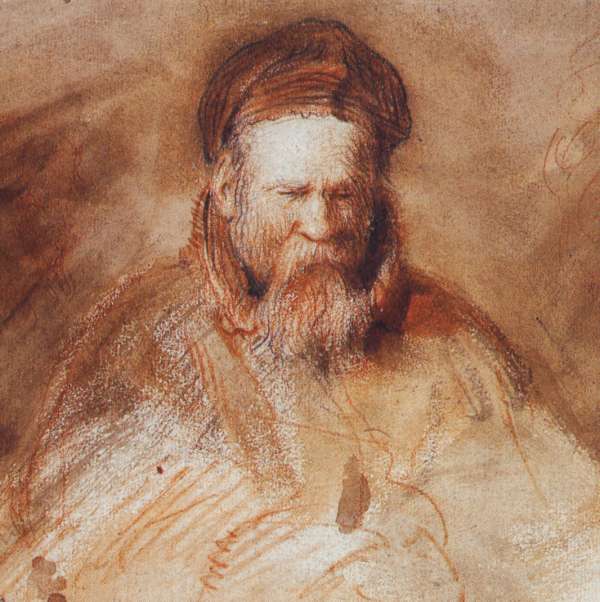
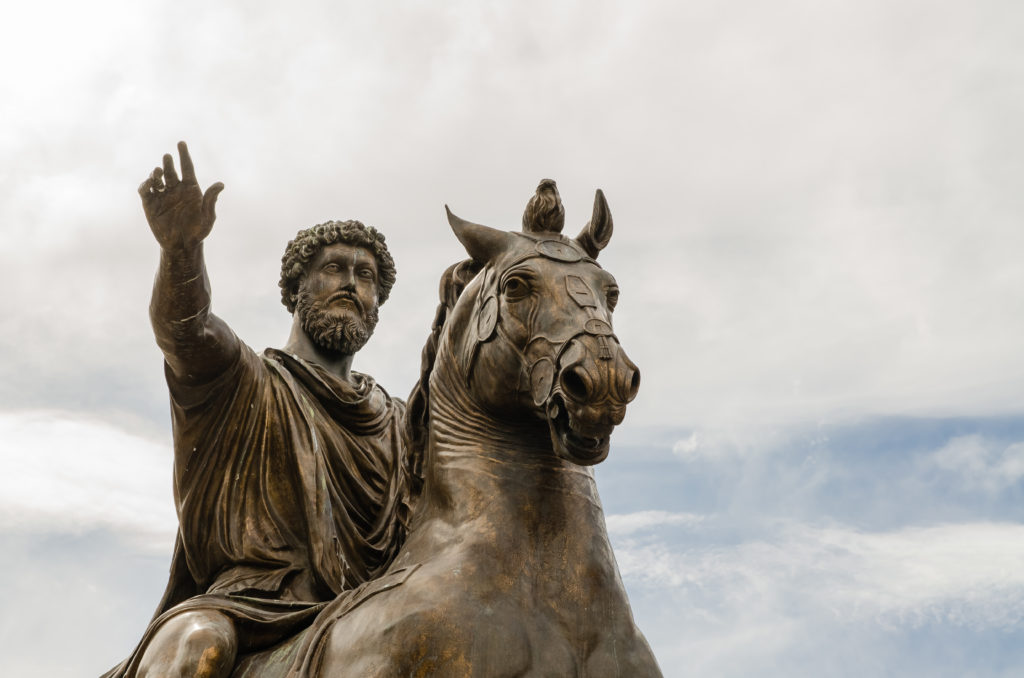
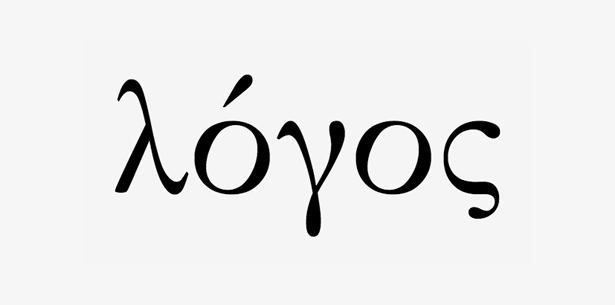
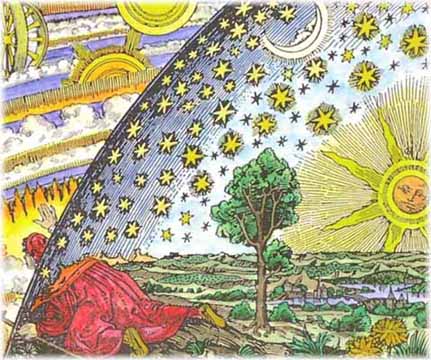
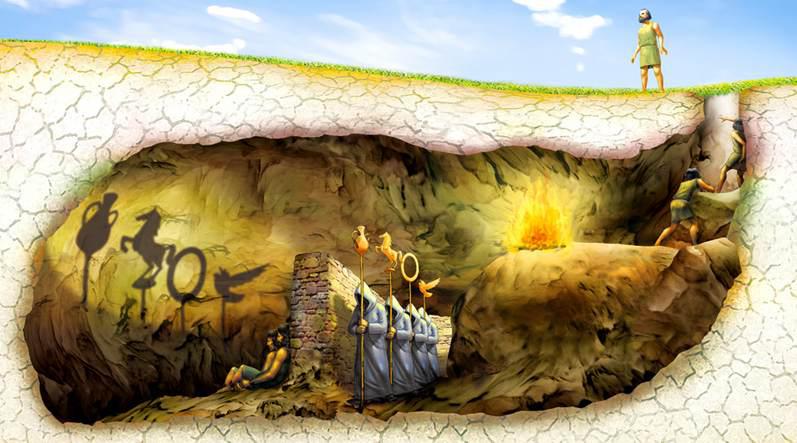
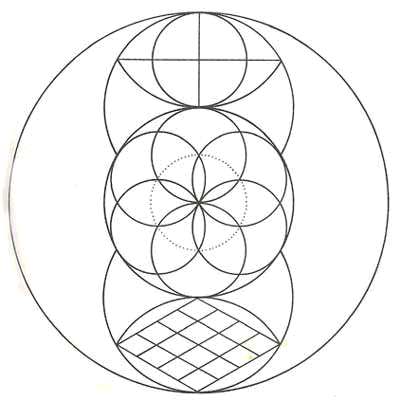
Lets put it this way.If your dad had 10 kids, and they were all his, would there still be only one father? Jesus is Gods son. Created by him. (and mary too)Kind of like you are your Fathers Daughter/Son. Created by him. (and your mom too)